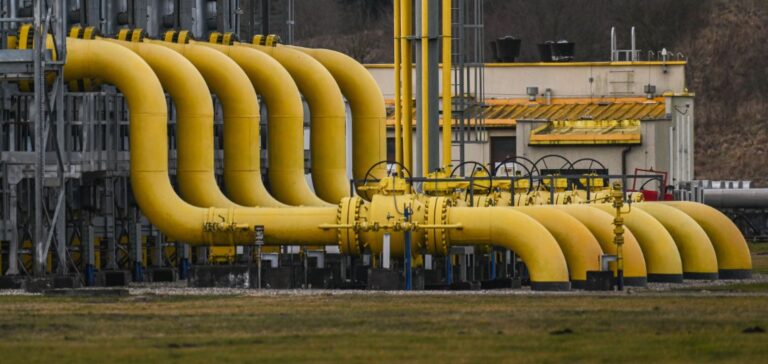European gas prices saw a significant drop on Wednesday, February 26, reaching their lowest level in more than two months. This decline comes as concerns over gas storage in Europe ease and negotiations for a ceasefire in Ukraine make progress. At 15:10 GMT, the Dutch TTF futures contract, the benchmark for European natural gas, was trading at €42.80 per megawatt-hour (MWh), a 3.37% drop from the previous day. The price briefly hit €42.20, its lowest level since December 19, 2024.
Analysts highlight that this downward trend is driven by growing optimism over a diplomatic resolution to the Ukraine conflict, particularly after a phone call between Donald Trump and Vladimir Putin, which paved the way for ceasefire discussions. Giovanni Staunovo, an analyst at UBS, explains, “The expectation of a partial resumption of Russian gas exports,” alongside the potential for a ceasefire, is having an impact on prices in Europe. Russia, the second-largest oil producer in the world, remains a key source of energy supply for the continent.
Meanwhile, a slight improvement in temperatures has helped slow the decline in European gas stocks, alleviating pressure on the market. Mike Fulwood, a researcher at the Oxford Institute for Energy Studies (OIES), notes that Europe experienced a reduction in its gas reserves in the final quarter of 2024, due to extreme cold and a decline in wind energy production.
Adjustments to gas storage targets in Europe
At the same time, German energy companies are pressuring the government to reduce the gas storage target, set by the European Union at 90% for the upcoming winter. They are calling for the target to be revised to 80%, in order to ease market tensions. This demand reflects a desire to align storage capacities with market conditions and alleviate the anxiety of another potential energy crisis.
Impact of oil policy on energy markets
The oil market is also experiencing global volatility. Analysts note increasing uncertainty regarding economic and oil prospects, particularly following Donald Trump’s policies. “Economic and oil prospects are becoming increasingly uncertain,” says John Evans, an analyst at PVM. Consumer confidence in the United States, the world’s largest oil consumer, has notably declined in February. This trend has weighed on oil prices, although OPEC+ (Organization of the Petroleum Exporting Countries and its allies) is still considering adjusting its oil supply increase plan. According to Arne Lohmann Rasmussen, an analyst at Global Risk Management, it is likely that OPEC+ will once again postpone its supply increase plan.
Oil prices maintain relative stability
In the oil market, prices remained relatively stable on Wednesday. North Sea Brent, for April delivery, edged down by 0.05%, to $72.98 per barrel, while West Texas Intermediate (WTI), the US equivalent, rose 0.12%, to $69.01. These fluctuations underscore the ongoing uncertainty surrounding global oil demand prospects and potential adjustments to OPEC+ supply plans.






















